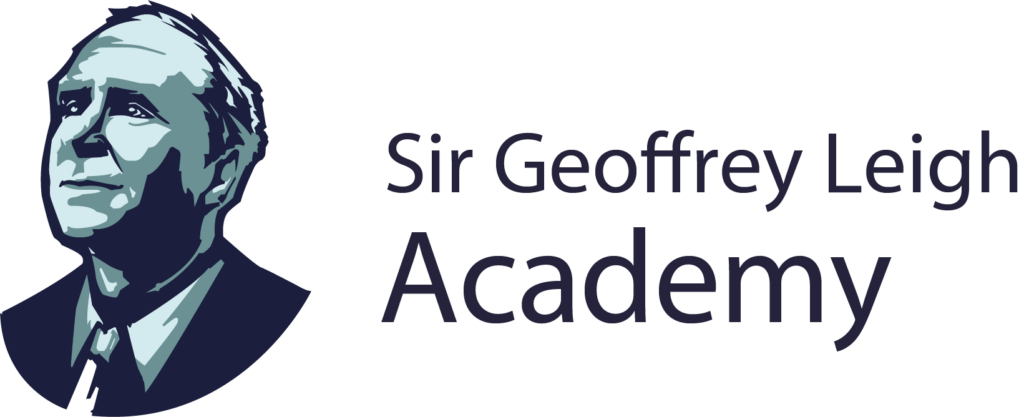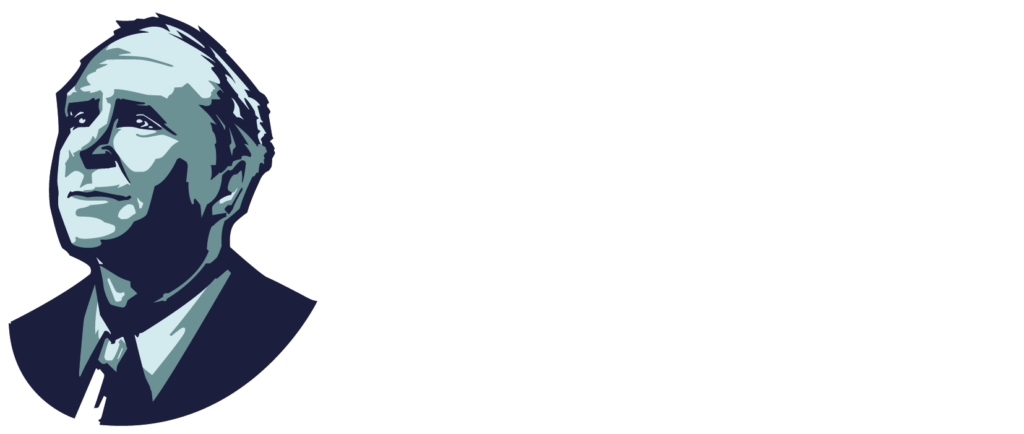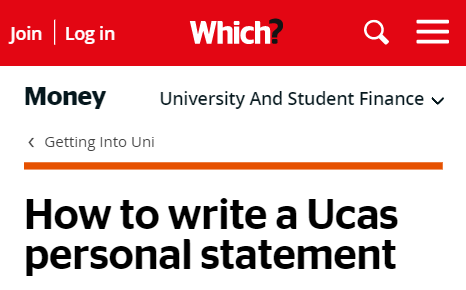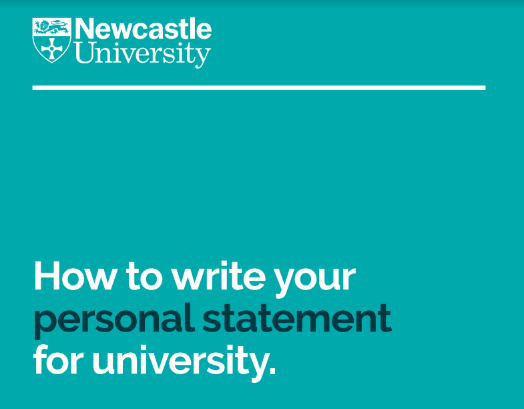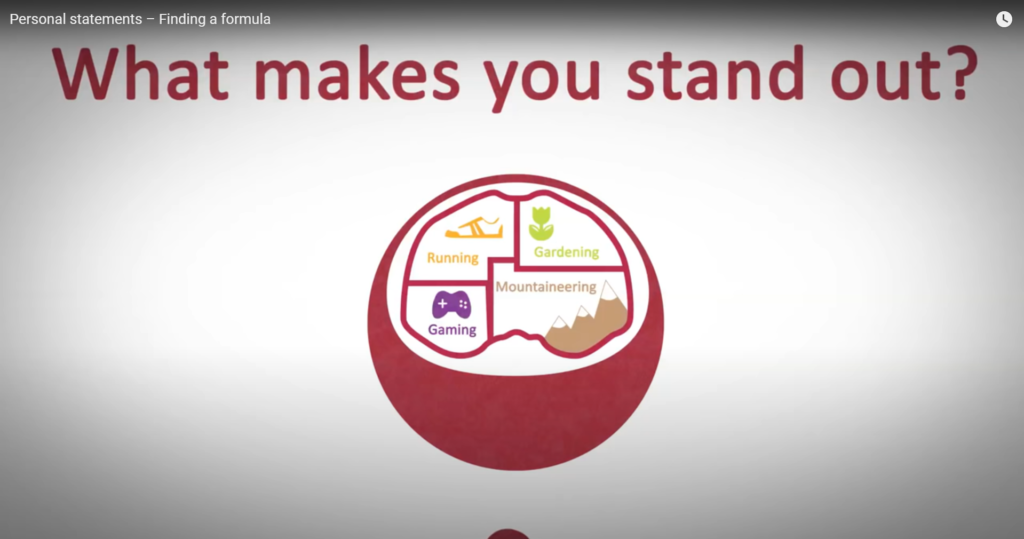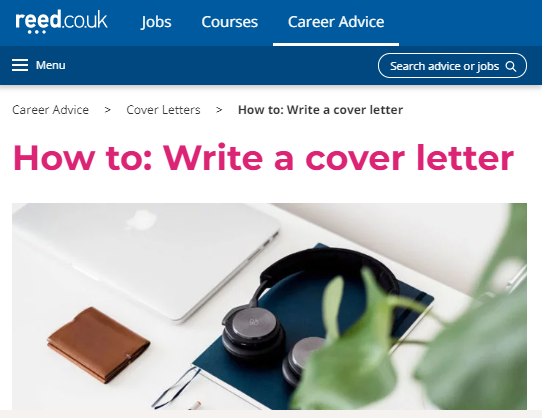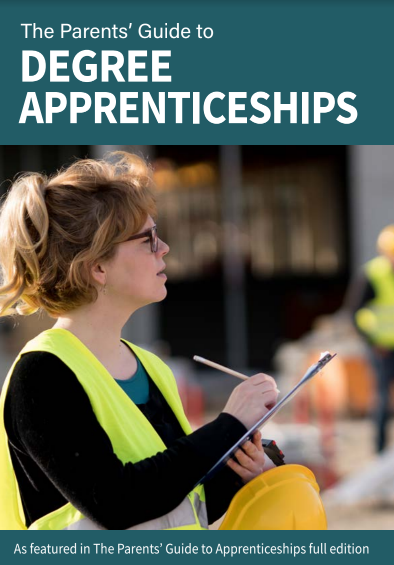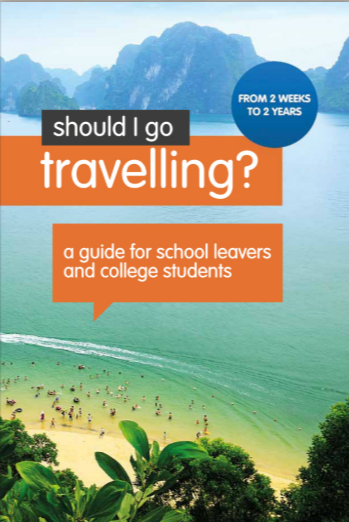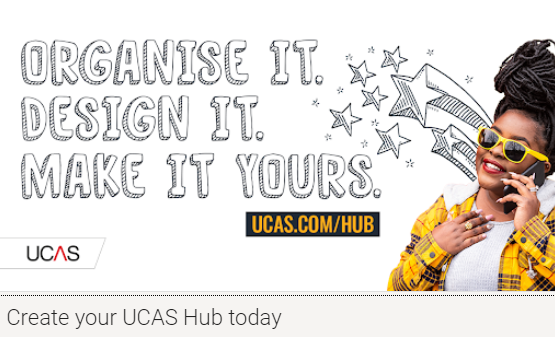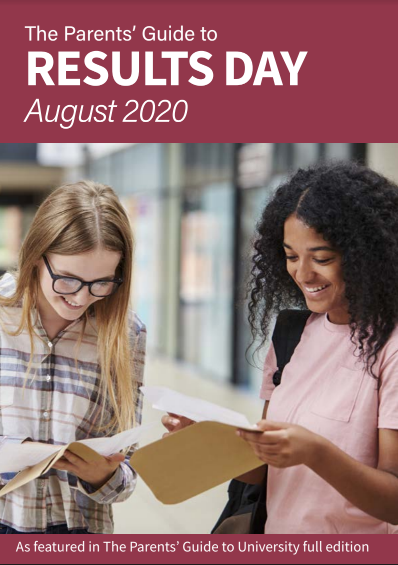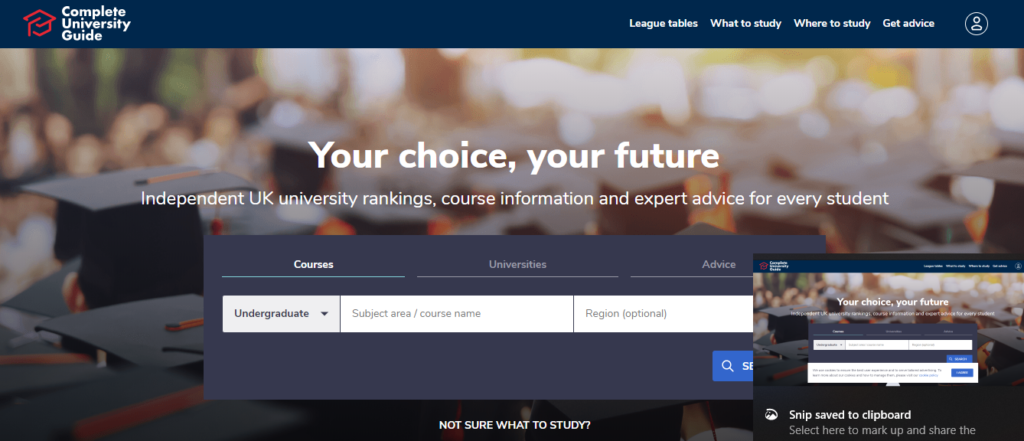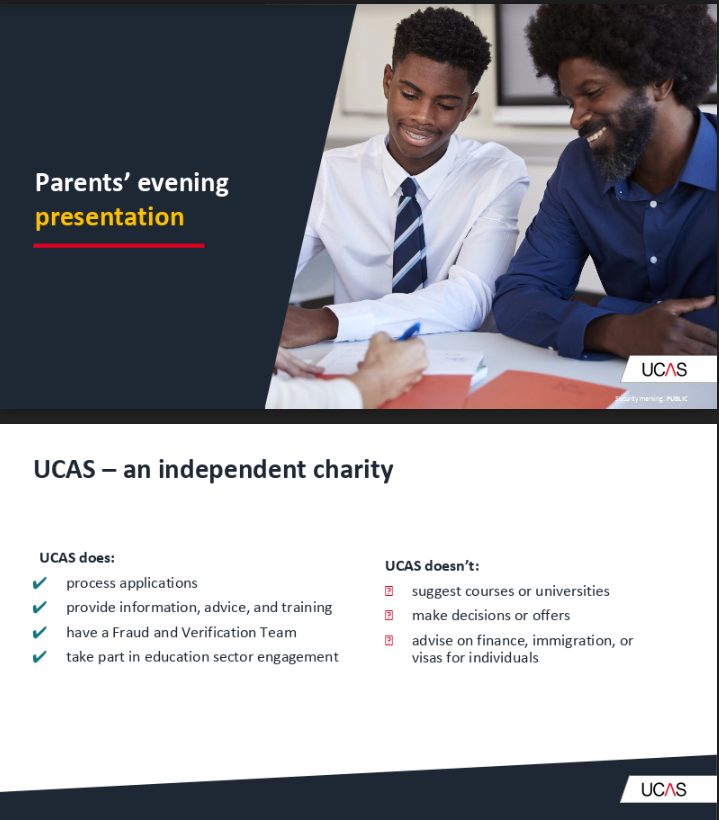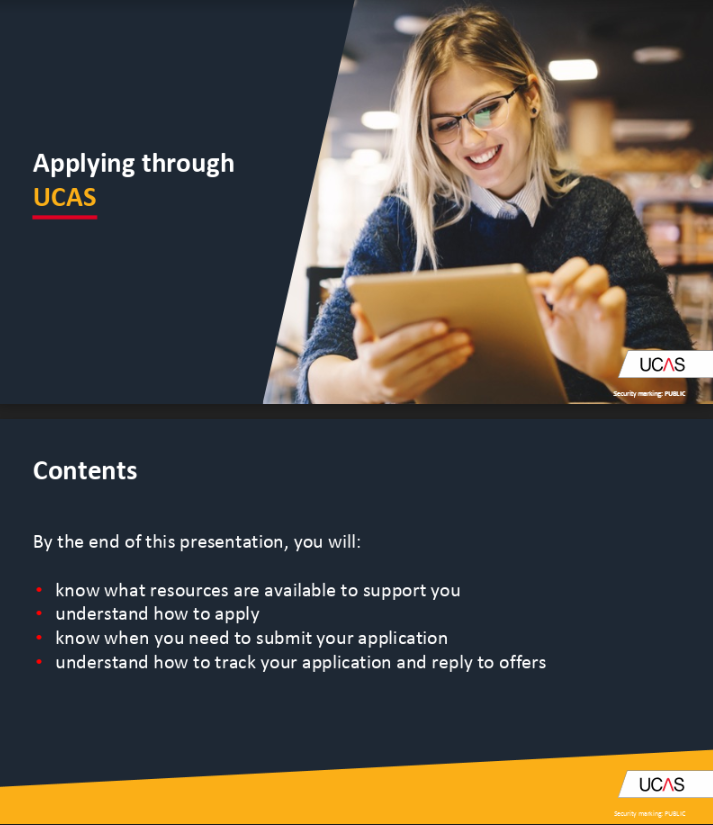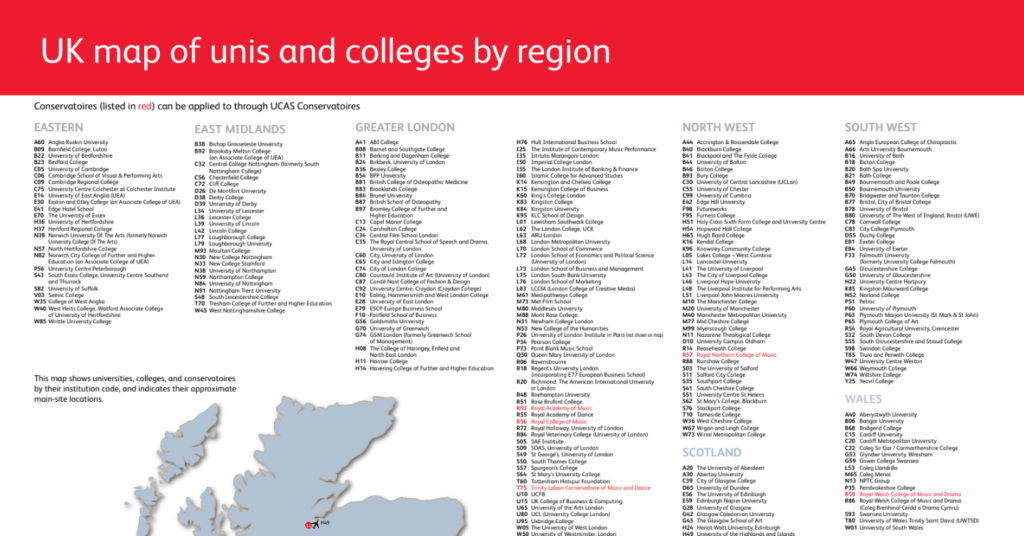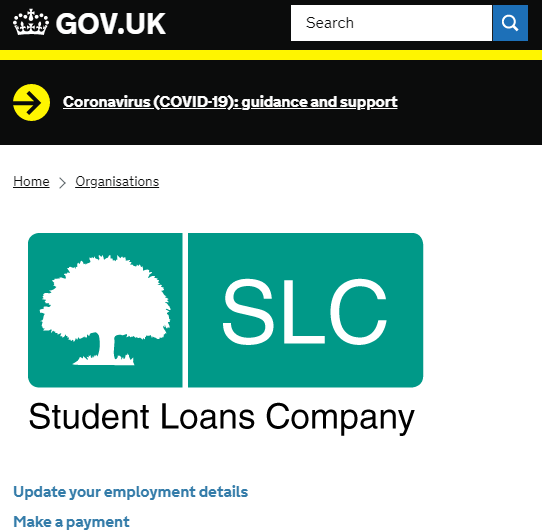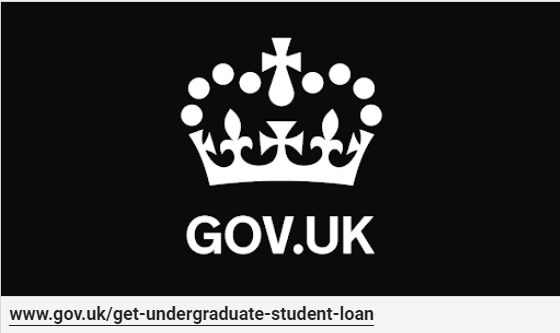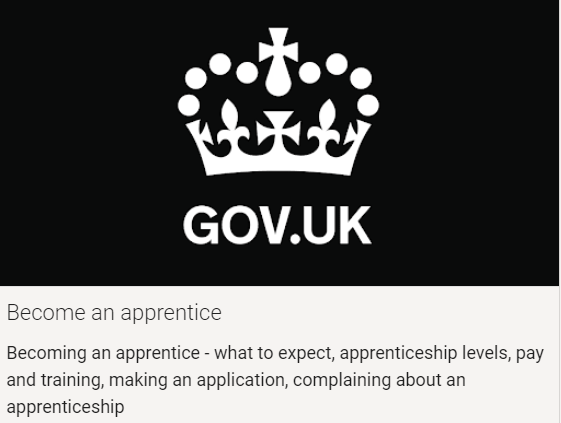It doesn’t take very long of being in Post-16 to realise that these two years fly by and you are quickly faced with making long-term decisions about your future. This page is designed to help you make those choices, by providing you with information about the four main options available to students finishing Year 13:
- Employment
- Apprenticeships
- University
- Gap Years
Options Overview and Personal Statements
With so many options for students to choose from at age 18, it can be daunting and overwhelming! Students who want to carry on gaining qualifications (and therefore increasing their earning potential) often ask: ‘Should I go to university or take an apprenticeship?’ This video – presented by industry professionals – gives some insight into what future employers look for in apprentices and university graduates, once they’re ready to start work.
UCAS has provided this useful template to help your decision-making about whether you would like to go to university, go to work or start an apprenticeship.
Download your copy of the template.
Exemplar Personal Statements – These are all really good DRAFT examples, written by our own students, but remember that you need to write your own – employers, apprenticeship providers and universities ALL use plagiarism software! Click here to view the templates.
An independently-published ‘Parents’ Guide to Post-18 Options’ that provides additional information and help. Click here to view the guide.
Personal Statement
Advice on how to write a personal statement, a cover letter and a CV, if you are planning to take an apprenticeship or go straight into employment:
How do I choose my starting career? HELP!
Another really useful tool you can use to help you to decide your future is to take a Morrisby Test. While this is not a free service, you pay once and then have lifetime access to the service. This could be really handy, as careers experts estimate that students leaving school now are likely to have at least 8 different careers during their working lifetime! You can visit the Morrisby website here.
‘Careerpilot’ is a GREAT website that can help students to explore Post-18 options. They can identify future careers – based on their preferences, skills and aptitude – and then find out whether they are better off going straight into employment, taking an apprenticeship or going to university. This service is FREE and can be accessed here.
Employment, Apprenticeships and Gap Years
If you decide that an apprenticeship is the right choice for you, you are advised to create an account with the government’s ‘Find An Apprenticeship’ service: https://www.gov.uk/apply-apprenticeship
Careerpilot and Morrisby are both excellent organisations that can help you to decide on a career, whether you want to go straight into employment or take an apprenticeship first:
There are many companies that specialise in helping young adults arrange a gap year. A good starting point is a simple Google search (using the search term ‘gap year’) but here you can see typical help and information from one such company, GapYear360:
Students – You will find lots of other useful information on our Post-16 Community Google Classroom. The joining code is cruhkyz.
University
Two websites that can help you to select universities and courses are The Complete University Guide and The Student Room. You can also use the UCAS Unibuddy service to talk directly to current university students about what their course is actually like to study.
UCAS fees for UCAS 2023
£20 to apply to one course at one university or £26 to apply to a maximum of five courses (payable by the student or their parents by credit or debit card at the point of submitting an application for the school to process).
These support materials from UCAS explain how the UCAS application process works and show where UK universities are based.
Financial Considerations
Students – You will finds lots of other useful information on our Post-16 Community Google Classroom. The joining code is cruhkyz.
Next Steps for Students and Teachers
5 key things you need to remember about what happens next:
- Your teachers will write their subject references in the summer term but your form tutor won’t write your school reference until the autumn term, so your predicted grades in the summer of Year 12 and the autumn of Year 13 will be the ones that really count, if you are applying for university. If you are applying for employment or an apprenticeship, your form tutor will be able to harvest your predicted grades in the spring term, as that is when the application window opens for these routes. However, your teachers will still write their subject references in the summer term, so that is when they need to see your attitude, ability and aptitude clearly on display, whichever option you decide is right for you.
- You need to be doing thorough research throughout the summer term and over the summer holidays, especially if you are applying to university. The application window for early applications (Oxford, Cambridge, Medicine, Dentistry and Veterinary Science) opens at the start of September in Year 13 and for everyone else in mid-October, so you won’t have long in Year 13 to get university applications completed.
- If you are planning to go to university, try to attend open days for the universities that are at the top of your list.
- If you are planning to go straight into employment or start an apprenticeship, you need to try to get meaningful work experience, either during the summer of Year 12 or early in Year 13, as that will really help you to secure your ideal position. Remember – so long as you won’t be missing school when there is an immovable date for an exam or for coursework submission, you can take a week for work experience at any time, so long as you have discussed it with Mr Forcella-Burton first.
- If you are just plain confused about which option is best for you, start by working out what your ideal first career would be and work backwards from there. If you research entry requirements for that career (using a site like Careerpilot or Morrisby), you will find out whether you will need to take an apprenticeship or go to university or if you can go straight into employment. If you think you need to take a temporary break from decision-making, why not take a gap year and use that time to distance yourself from school and gain clarity about what you want to do next?
Timeline
- Research future careers to find out what qualifications you will need to start them
- Research universities that offer the course you are interested in studying
- Attend university open days
- Seek and undertake relevant and useful work experience
- Write your personal statement – gaining feedback for improvements from your form tutors, subject teachers and, finally (and if you want it), Mr Forcella-Burton – by the summer holidays
- Register for ‘UCAS Apply’ from 3rd May 2022 for UCAS 2023 – when asked for the school’s buzzword, enter Forcella, so that staff can see and process your application for you
- Create your own ‘UCAS Hub’ to capture all of your research
- Visit summer university open days
- If you will be an ‘early applicant’, book and study for the extra tests you will need to take (such as BMAT and/or UCAT for Medicine and admissions tests for Oxbridge colleges)
- Submit ‘early applications’ to UCAS from 6th September 2022
- Attend autumn university open days
- Submit all other applications to UCAS between mid-October and mid-January
- Make ‘late applications’ to university – you can still apply after the 25th January 2023 deadline but universities are not obliged to respond until results day at latest
- Await decisions from universities
- When you have received all of your responses from universities, accept one ‘Firm’ and one ‘Insurance’ offer (this should be a lower offer than your firm offer) from universities (the rest are automatically rejected when you do this) – if you received them all by mid-March, you need to do this by mid-May
- When you have accepted your two preferred university offers, they will contact you to arrange your first year accommodation
- Apply for student finance
- If you are intending to apply for employment or an apprenticeship, attend the ‘Preparing for Employment and Apprenticeship Programme’ (PEAP) sessions in school
- Start applying for apprenticeships – most larger employers start to advertise these on their websites and the government website in the Spring Term
- Ensure you have applied for both student accommodation and student finance
- Continue to apply for apprenticeships and employment
- Await exam results – IB qualifications in early July and A level and vocational qualifications in mid-August
Once you have your VISION of what your next step is going to be, it becomes really important that you put in enough EFFORT to get there, have the right study SYSTEMS in place to achieve your goals, PRACTISE regularly for what you will have to do in coursework and exams and maintain the right ATTITUDE to your studies. In other words, once you know what you want to do next, you need to make sure you get your VESPA right.
Make sure you join our alumni group, so that you can keep in contact with us after you have finished Year 13 and gone on to your next step:
Join Sir Geoffrey Leigh Academy’s Alumni Group
Students – You will find lots of other useful information on our Post-16 Community Google Classroom. The joining code is cruhkyz.


